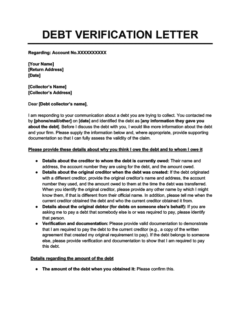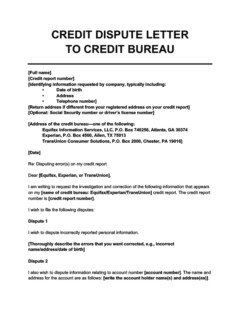Table of Contents
What is TrueAccord?
Established in 2013, TrueAccord is a debt collections agency that provides automated collection services for businesses in a variety of industries. 1 Unlike other debt collectors, they primarily use digital channels to reach debtors.
TrueAccord may contact you through the following means:
- Text messages
- Emails
- Automated voicemails
- Push notifications
- Facebook ads 2
TrueAccord is also legally allowed to contact you over the phone or by mailing you a letter, although they claim they rarely do this.
In addition to debt collection, TrueAccord also provides the following services to businesses:
- Consumer profiles
- Payment processing
- Automated collection messages
- Other automated communications
Who does TrueAccord collect for?
TrueAccord offers its services to businesses in the following industries:
- Banking and Financial Services
- Real estate
- Telecommunications
- Insurance
- Ecommerce
- Healthcare
- Utilities
That means TrueAccord collects many kinds of debt, including:
- Consumer loans
- Credit card debt
- Past-due rent 3
- Medical bills and insurance payments
- Phone and utility bills
Is TrueAccord a scam?
No, TrueAccord isn’t a scam. Since debt collectors traditionally communicate by mail or over the phone, it’s natural to be suspicious of texts and emails from debt collection agencies, but TrueAccord is a legitimate company.
Debt collectors are allowed to contact you electronically—including on social media. Under the Fair Debt Collection Practices Act, debt collectors must identify themselves in their first digital communication and provide a simple way for you to opt out of receiving messages on that platform or at to that account. 4
If you receive a text, email, direct message, or any other communication from TrueAccord that you aren’t sure is legitimate or accurate, check your account number online or contact them via email or phone to verify your debt.
TrueAccord Contact Information
If you want to remove TrueAccord from your credit report, write to their address:

Address: 16011 College Blvd, Suite 130
Lenexa, KS 66219
Phone Number: (866) 611-2731
Website: www.trueaccord.com
Disputing an incorrect entry on your credit report can be stressful and difficult. Consider working with a professional.
VIDEO: TrueAccord in 2 Minutes—Fix Your Credit Report & Know Your Rights
How to stop TrueAccord from calling you
TrueAccord will call, email, or mail you if they believe you have an unsettled debt. The reason debt collectors like these are calling you is simple—they want to pressure you into paying up.
Unfortunately, TrueAccord representatives will keep trying to contact you unless you pay the debt, prove that it doesn’t belong to you, or reach an agreement with them (or with your original creditor).
Don’t ignore debt collectors like TrueAccord—in the end, you may get sued, and you may even have your wages garnished. It’s smarter to engage with them tactically to ensure you don’t have to pay, or that you get the best deal you can.
To begin, you can get TrueAccord to stop calling you—at least temporarily—by sending them something called a debt verification letter.
Send a debt verification letter
A debt verification letter is a formal request that obligates a debt collector to provide further evidence of a debt. You must send it within 30 days of them first contacting you. Note that TrueAccord should have sent you a debt validation letter proving you owe the debt first, as it’s required by law.

Debt Verification Letter
Use this debt verification letter template if TrueAccord has contacted you about a debt and you want to dispute it. If you send this within 30 days, they're legally obligated to respond with evidence of the debt and can't contact you until they do.
Benefits of sending a debt verification letter
Sending a debt verification letter has three benefits:
- You’ll prevent TrueAccord from calling you during this period: When you send a debt verification letter, third-party debt collection agencies like TrueAccord are required by law to stop contacting you until they can provide evidence that you actually owe the debt they’re trying to collect. 5
- You’ll get more information about the debt: You should never pay a debt that you don’t recognize. Forcing TrueAccord to provide documentation will help you determine whether this is a legitimate debt that you actually need to pay. It’s an easy way of figuring out if the debt collector is a scam agency.
- You may successfully disown the debt: If TrueAccord can’t provide more information about the debt (which is frequently the case), then they have no choice but to delete it from your records.
Beware the statute of limitations
The verification materials that you receive may show that your debt has passed the statute of limitations. This is a legal limit that means the debt is too old for TrueAccord to sue you over, at which point it’s known as time-barred debt.
If this is the case, you can send TrueAccord a letter telling them to stop contacting you. Legally, they’ll have to abide by that.
The statute of limitations on most debts is between 3 and 6 years, but the exact amount of time depends on several factors, including the state you live in. The best approach is to check your state attorney general’s website and email their office if the information you’re looking for isn’t available online.
How to remove TrueAccord from your credit report
If your credit score is suffering as a result of TrueAccord debt, there are three ways to recover:
1. Dispute the debt with all three credit bureaus
If you think that the debt associated with TrueAccord on your credit report is illegitimate (e.g., if you paid it on time or it belongs to somebody else), dispute the item on your credit report. You can also dispute debts that are older than 7 years (measured from the date of your first missed payment)—by law, they’re supposed to fall off your credit report by then.
To dispute a debt for free, send a credit dispute letter to the credit bureaus that are showing TrueAccord on your credit report.

Credit Dispute Letter
If TrueAccord is on your credit report by mistake, the credit bureaus have to remove it from your report. Use this credit dispute letter template to file a dispute about TrueAccord directly with any of the credit bureaus.
To find out which credit bureaus you need to send the letter to, request your free credit report from each of the major credit bureaus (Experian, Equifax, and TransUnion) at AnnualCreditReport.com. If they don’t respond to your dispute within 30–45 days, then they’re legally obligated to remove the item in question.
2. Negotiate with TrueAccord
Unfortunately, if the debt is legitimate and it’s less than 7 years old, removing TrueAccord from your credit report will be very difficult (although not impossible).
Your best move at this point is to simply pay the debt. Newer credit scoring models ignore paid-off collection accounts, which means paying off your collection will boost your credit score even if you can’t remove the item.
However, when you pay, there are two negotiation strategies you can try as a last-ditch attempt to remove TrueAccord from your credit report:
- Pay for delete: You might be able to convince TrueAccord to remove the negative mark in exchange for paying off the debt. You can open these negotiations by sending them a pay-for-delete letter.
- Goodwill deletion: This is an alternate strategy you can try after paying your debt. Once the account is paid off, you can send TrueAccord a goodwill letter asking them to empathize with your situation and remove the mark from your credit report as an act of kindness. Create your letter using our free goodwill letter template.
If you can’t afford to pay off your debt, try negotiating a debt settlement
If your debt is fairly old, then there’s a chance that TrueAccord will accept less than the full amount you owe (a practice known as debt settlement) to minimize their losses. You can negotiate a debt settlement with TrueAccord over the phone or by sending a debt settlement letter.
3. Wait 7 years for TrueAccord to fall off of your credit report
Unfortunately, most collection accounts will stay on your credit report for 7 years after your first missed payment. Even if you pay off your debt to TrueAccord, it will remain on your credit report.
Learn more about TrueAccord’s impact on your credit score:
- How many points will my credit score increase after I pay off collections?
- How to rebuild your credit after having a debt sent to collections
How to deal with TrueAccord harassment
Unless you tell them not to, TrueAccord will keep contacting you until you pay off or settle your debt. However, there are restrictions on how they can go about doing this.
Restrictions on TrueAccord
When attempting to collect payments from you, TrueAccord must adhere to the regulations specified in the Fair Debt Collection Practices Act. This is a federal law that prevents debt collectors from engaging in harassment or predatory behavior, such as lying to you or calling you incessantly or at unreasonable hours.
TrueAccord representatives also need to follow the rules set out in the Telephone Consumer Protection Act. It’s a good idea to familiarize yourself with these laws so that you can take action against TrueAccord if they do something illegal.
Keep records of letters and phone calls
If you think that TrueAccord may be violating your rights, then it’s a good idea to record your phone calls, save any letters they send you, and keep records of when they’ve contacted you. This will make things much easier if you need to take legal action against them in the future.
Can I sue TrueAccord for harassment?
Yes, you can sue TrueAccord for harassment. If you can show that they’ve violated your rights under the Fair Debt Collection Practices Act, then you can collect $1,000 in statutory damages for each violation as well as payment for any damages that you’ve sustained as a result of their violation. TrueAccord will also have to pay your attorney fees and court costs.
How to file a complaint against TrueAccord
If a debt collector violates your rights under the Fair Debt Collection Practices Act or does something illegal, then you can report them to the Federal Trade Commission, the Consumer Financial Protection Bureau, or your state attorney general. From there, you’ll be able to find out whether you can also sue TrueAccord.
Another option is filing a complaint on the Better Business Bureau (BBB) website, but this might not have the outcome you’re hoping for. Bear in mind that the BBB is actually a private organization that has no affiliation with the US government. They’ll forward your complaint to TrueAccord, but there’s no guarantee that the agency will address it in a satisfactory manner. What’s more, if your dispute is sent to an arbitrator, then you may give up your right to take TrueAccord to court.
Should you pay TrueAccord?
You should only pay a collection agency like TrueAccord if you’re certain the debt is yours and you owe it. If you’re struggling financially and can’t afford to pay this debt collector, you can get help from a non-profit credit counselor.
Takeaway: TrueAccord is a legitimate debt collection agency
- TrueAccord is a debt collection agency, which means they collect severely delinquent debts that lenders have charged off and transferred or sold.
- TrueAccord probably isn’t a scam, but you should make sure to avoid scammers by verifying your debts and only making payments once you're sure they're legitimate.
- You have rights under the Fair Debt Collection Practices Act that prohibit debt collectors from harassing you. You can sue for harassment, and you won’t need to pay the legal fees if you win.
- There are several ways of removing TrueAccord debt from your credit report, but if these approaches fail, then you should consider seeking advice from a credit repair professional.







